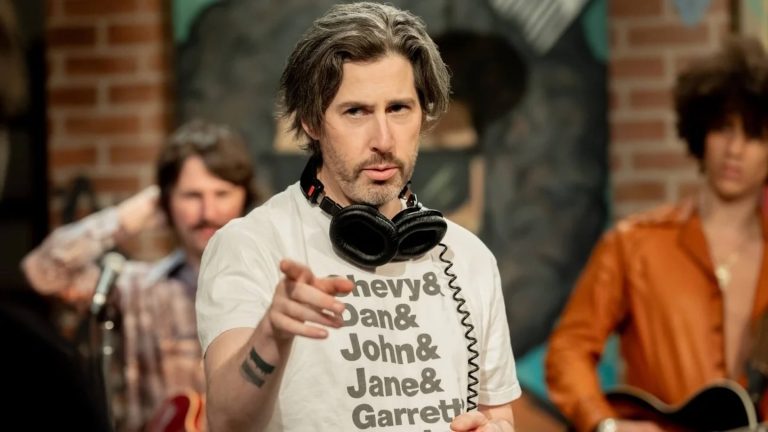10 Inspiring Lucille Ball Quotes for Screenwriters

Throughout her long career, actress, comedian, producer, and studio executive Lucille Ball appeared in 72 movies, including a string of B movies in the 1940s that garnered her the unofficial title "The Queen of B Movies."
Later in that decade, Ball played the lead in the radio comedy My Favorite Husband, which caught the attention of CBS executives who wanted her to create something similar on television.
Ball insisted that the show include her real-life husband, Desi Arnaz, a famous Cuban bandleader and entertainer. They weren't interested, so Ball stepped away. She and Desi then put together a vaudeville act that was similar to the eventual I Love Lucy show and took it on the road. CBS later signed them to recreate their spark on television.
They successfully pushed to shoot the series in Hollywood. At the time, most shows were shot in New York. The pair also negotiated to shoot the series on film, agreeing to take a pay cut when CBS balked at the high cost of shooting on film.
As part of that deal, they would have full ownership rights to the show and have it run under their production company, Desilu Productions.
I Love Lucy made its debut on October 15th, 1951. The show was an instant success and set the stage for many more family-related sitcoms. The series pushed the envelope by including storylines dealing with marital issues, women in the workplace, and pregnancy — subjects considered too taboo for television up to that time.

The success of I Love Lucy was unmatched during its six-year run. It was the Number One show in the country during its first four seasons.
The ground-breaking television series ended in 1957. Still, Desilu Productions continued producing more television hits like Our Miss Brooks, Make Room for Daddy, The Dick Van Dyke Show, The Untouchables, and Mission: Impossible.

For you Trekkies out there, you have none other than Lucille Ball to thank for the original Star Trek series. She saved it when CBS was going to cancel the show after seeing the pilot and was instrumental in revamping the show to what it eventually came to be.

Image by Tom Holtkamp
After Ball and Arnaz divorced in 1960, she remarried to comedian Gary Morton and bought out Arnaz's share of their production company, taking over Desilu Productions. This made her the first woman to run a major television production studio.
In 1967, she sold the company to Gulf-Western for $17 million.
Many acting and producing gigs followed, including modest hits in more "Lucy" shows — The Lucy Show (1962-68) and Here's Lucy (1968-73).
Ball became the first woman to receive the International Radio and Television Society's Gold Medal in 1971. She won four Emmys, was inducted into the Television Hall of Fame and was recognized for her life's work from the Kennedy Center for the Performing Arts.
Needless to say, Ball changed the film and television landscape. The ripples of her career are still felt today.
Sign up for alerts and submit to our Comedy Screenwriting Competition!
Here we present ten wise and inspiring quotes from one of Hollywood's greatest pioneers, Lucille Ball, followed by our own elaboration on how screenwriters can apply her wisdom to their screenwriting career.
1. "One of the things I learned the hard way was that it doesn’t pay to get discouraged. Keeping busy and making optimism a way of life can restore your faith in yourself."

Feeling sorry for yourself, being angry at Hollywood for your lack of success, and getting discouraged amidst failure and rejection doesn't do you any good in the long run.
All that you have to do is keep working, keep writing, and stay positive. What you're going through is something that every successful screenwriter has gone through in their career.
People are going to tell you that your scripts aren't good enough. The industry is going to give you more rejection than you'll ever receive acceptance. Some scripts aren't going to work. Feedback is going to be negative. You can't escape these inevitabilities.
But you get through them by keeping busy, being optimistic, and believing in yourself.
2. "In life, all good things come hard, but wisdom is the hardest to come by."
Wisdom is often defined as the ability to use your knowledge and experience to make good decisions and judgments.
You don't attain wisdom without the dedication of years of sacrifice and effort. It takes time. And because of that, wisdom is hard to come by. But it's much more important than a quick and easy paycheck.
Wisdom gives you the ability to sustain a career. And the knowledge and experience necessary to attain wisdom is a direct result of the failure and rejection that you will go through as a writer. That's part of the process.
Strive for wisdom in your life and your screenwriting journey. Embrace your failures and rejection and learn from them. That's how you gain wisdom that helps you make good decisions and judgments, all of which are necessary to succeed.
3. "I’d rather regret the things I’ve done than regret the things I haven’t done."

You can't succeed without trying and taking risks. And if you fear the failures, dead ends, and silence that you may face, you deny yourself the opportunity to gain the knowledge and experience you need to succeed.
Go into this screenwriting journey with the goal of having no regrets. Take those chances. Take those shots in the dark. Tackle those difficult projects that intimidate you.
Better to live life with no regrets than focus on trying to avoid the inevitable failure and rejection that makes you a better screenwriter in the long run.
4. "Luck? I don’t know anything about luck. I’ve never banked on it, and I’m afraid of people who do. Luck to me is something else: Hard work and realizing what is opportunity and what isn’t."
Does luck play a part in screenwriting? Sure. But you can never bank on it. You can never rely on your script just falling into the hands of the right people after you've submitted it to a contest, fellowship, or competition.
The most successful screenwriters make their own luck. And part of that is working hard to get your screenplays to where they need to be, and then getting them out to the right people.
Read ScreenCraft's How to Make Your Own Luck in Hollywood!
Luck will come your way — but only if you build enough bridges for it to pass over safely to you.
5. "I’m not funny. What I am is brave."

You could be the funniest, smartest, most talented, and most educated screenwriter — but if you're not brave, you're not going to go anywhere.
The writers that succeed are those that push the boundaries and aren't afraid of the consequences. They write unique screenplays and have original voices. They dare to push the limits. They take risks to get their names into the conversation.
Be brave.
6. "The more things you do, the more you can do."
It's easy to find your niche within screenwriting. You're good at a particular genre, so you stay in it with every project. You're more comfortable writing in a specific medium, so you continue to do so.
Never stop challenging yourself. Never stop trying to learn new things and evolve as a writer. The more you can do, the hotter prospect you are in the eyes of the industry.
If you're a feature writer, try writing a television pilot (especially in this current Golden Age of television). If you're a television writer, try writing a feature.
If you're known for comedy, try writing a horror flick.
If you're known for drama, take that talent to science fiction.
Lucille Ball was the queen of comedy, yet she managed to produce genre shows like Star Trek and Mission: Impossible. Without her taking those chances and trying something new, there would be no Star Trek or Mission: Impossible franchises running today.
7. "I don’t know how to tell a joke. I never tell jokes. I can tell stories that happened to me… anecdotes. But never a joke."
Great comedy isn't a result of great jokes being told. It's the stories in life that we find humor in where great comedy is created.
Just focus on telling a great story and finding the identifiable humor within it. People can relate to that. They can see it in their own lives. It offers a cathartic experience, which is the coveted end-game that every storyteller should strive for.
Setting up a punchline may get a laugh in the end. But telling a story is more memorable.
8. "Ability is of little account without opportunity."

What good is writing great scripts if you don't do everything in your power to create opportunities for them to be read?
Half of screenwriting is the actual writing. The other half is the less desirable one because it requires not only more effort but the chance at failure and rejection. It's intimidating.
As a screenwriter, you have to get over that. The defensive instincts will kick in as you blame Hollywood for your lack of success. You'll use that as an excuse not to put forth additional effort. And your screenwriting career will fail as a result.
Keep moving forward. If you get beat down with rejection and failure, get back up and create more opportunities.
9. "Whether we're prepared or not, life has a habit of thrusting situations upon us."
The struggles of your screenwriting journey never end — even when you're writing at a high level of success. There will always be the deal-gone-bad, the project that got away, the prospect that turned out to be nothing, and the lead that went nowhere.
The secret is to keep moving forward. Never look back. If it didn't work out the way you wanted and crushed you as a result, learn to change your expectations. Hope for the best, but always be prepared for the worst. Such is the life of a screenwriter (and life in general).
10. "When I stopped being prisoner to what I worried was others’ opinions of me, I became more confident and free."
You can't control what other people think of you and your writing. And the funny thing is, you'll quickly discover that their opinions of you and your work are less about you, and more about them.
Sometimes your script just isn't their cup of tea.
Sometimes the genre isn't something they respond to.
Sometimes your work isn't what their company is looking for.
Yes, you should take any note or piece of feedback that you can get and examine it to see if it can help your writing. But don't put so much stock in other people's opinions of you. Be confident and free. The rest will take care of itself.

Ken Miyamoto has worked in the film industry for nearly two decades, most notably as a studio liaison for Sony Studios and then as a script reader and story analyst for Sony Pictures. He has many studio meetings under his belt as a produced screenwriter, meeting with the likes of Sony, Dreamworks, Universal, Disney, Warner Brothers, as well as many production and management companies. He has had a previous development deal with Lionsgate, as well as multiple writing assignments, including the produced miniseries Blackout, starring Anne Heche, Sean Patrick Flanery, Billy Zane, James Brolin, Haylie Duff, Brian Bloom, Eric La Salle, and Bruce Boxleitner. Follow Ken on Twitter @KenMovies
For all the latest ScreenCraft news and updates, follow us on Twitter, Facebook, and Instagram.
Tags
Get Our Screenwriting Newsletter!
Get weekly writing inspiration delivered to your inbox - including industry news, popular articles, and more!




























